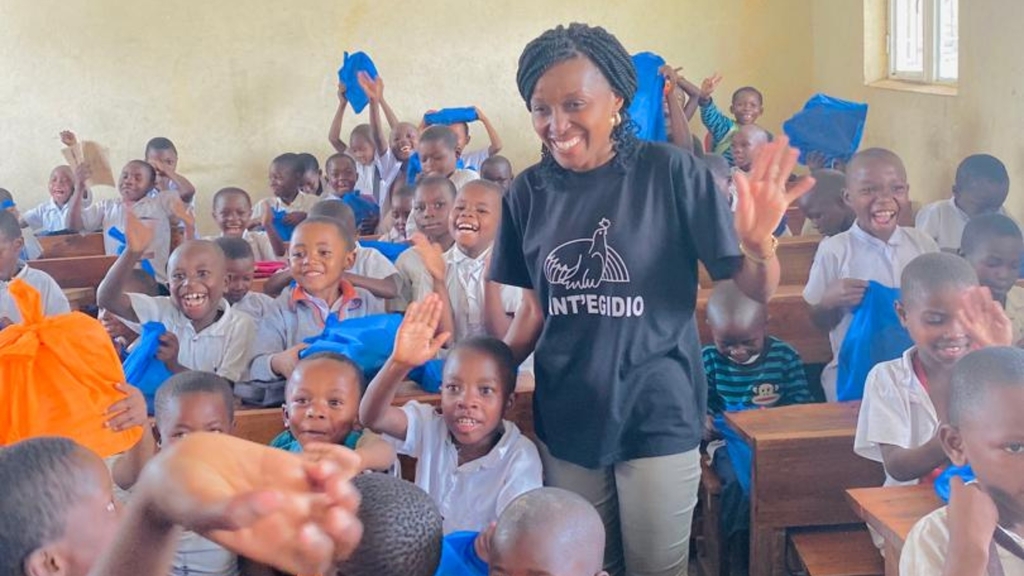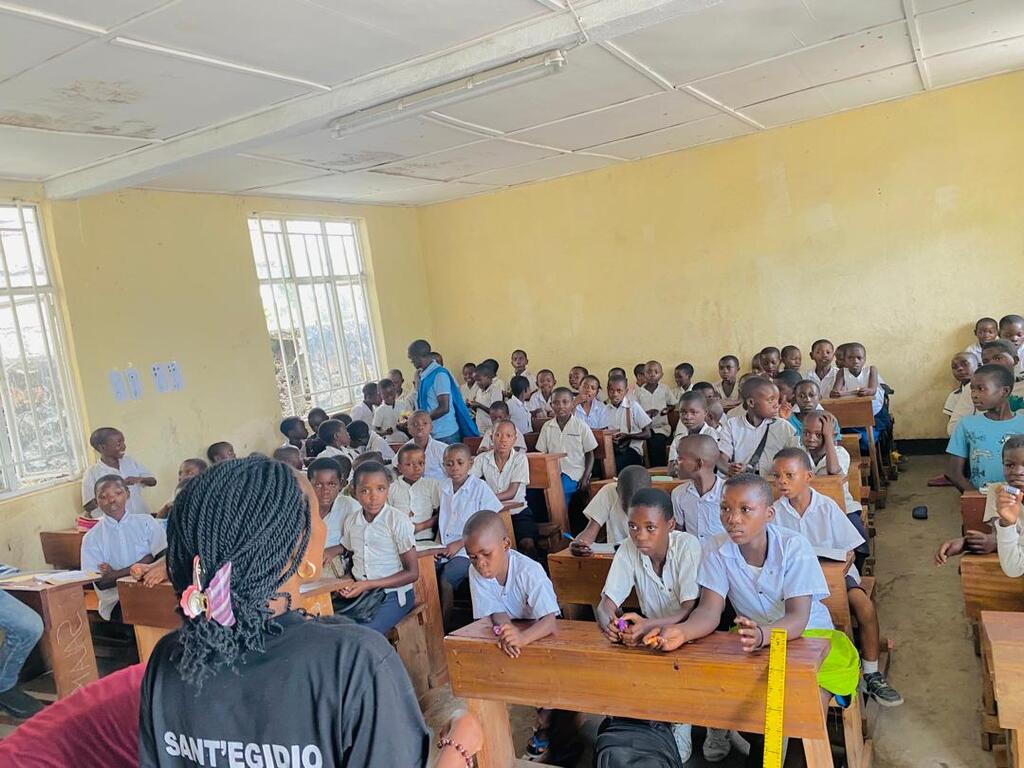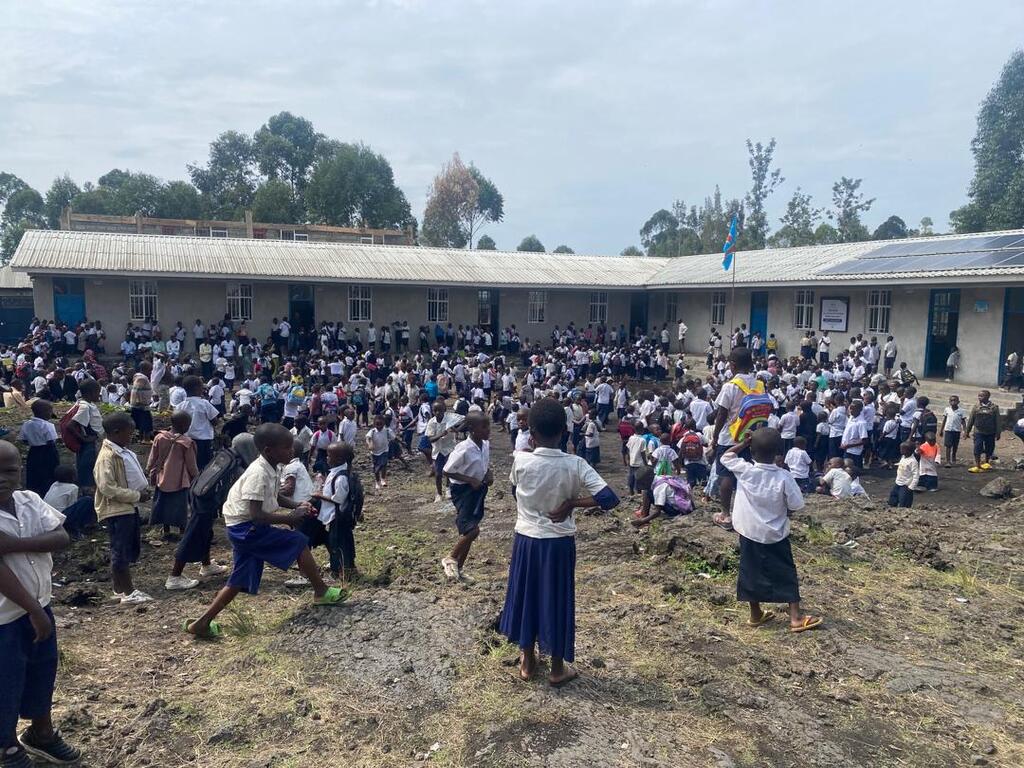
Gedeon was 10 years old when he arrived. He cried, crouched in a corner and refused to speak to anyone. Aline did not understand why, then little by little she got his trust, kept him company at break time, they did Gedeon's homework together. She established a relationship. Day by day Gedeon opened up to Aline. And she finally understood. The little boy did not know how to express his pain in life because at home, in the camp for war refugees where he lived, no one considered him: his mother, who was illiterate, was too busy trying to survive and make the family survive, no one knew who his father was. ‘Now Gedeon is a different child: he plays, he smiles, he no longer cries’. Aline Minani Furaha, 35, is the director of the Floribert Bwana Chui School of Peace, run by the Community of Sant'Egidio near the city of Goma in the Democratic Republic of Congo.
The heart of hell, one might say: the rebels of the M3 movement, of Tutsi ethnic group, supported by neighbouring Rwanda, have been advancing in the east of the country since the beginning of the year to occupy Goma, a key city in the North Kivu region. The militiamen are chasing out civilians, massacring them so as to exploit the rich subsoil and open direct routes to Rwanda. Aline joined the Community of Sant'Egidio as a volunteer 14 years ago, in the School of Peace, and has remained there. Today she is 35 years old, with a degree in Social Studies, her hair pulled back in thin braids and an open smile, veiled in melancholy.
Aline, why did you choose to stand by the little refugees and war victims? ‘What moved me were tears and prayer,’ she answers Avvenire during a video call on WhatsApp. ‘I felt responsible for the situation in my country and I realised I had to act. If I had done nothing, I would have felt somehow complicit in the evil. This is how you save lives, Cardinal Matteo Zuppi once told me. And when you save a life, you save a world'.
The school Floribert Bwana Chui is named after a young customs commissioner from Goma, a member of the Community of Sant'Egidio, who was tortured and killed in 2007 because he had not taken a bribe and had blocked the passage of rotten rice destined for the population. Today, the facility welcomes 1,200 children and young people from 6 to 15 years of age.
‘Almost all of them come from Mugunga,’ continues Aline, one of the refugee camps that have sprung up around Goma as a result of the guerrilla raids on the villages to plunder the precious coltan from Congolese lands.
The situation is risky for Aline and her staff. Schools in the border area between Congo and Rwanda have become a tragic strategic target: the militias systematically destroy them in order to recruit children for the war and clandestine work in the mines. More than 150 school buildings have been destroyed and occupied in recent months. Isn't the young, wide-eyed headmistress afraid? ‘Today 35 bombs exploded around Mugunga,’ Aline replies, ‘but I just cannot afford to be afraid. The children who attend Floribert Bwana Chui come from war and violence, they are so traumatised. My task is not to give them a formal education, but to teach them to live together, to taste a community spirit for the first time. They come here and they are so sad that they cannot even play. Here, we try to give them back their childhood, very patiently’
This is what she also told the Pope when she brought him the drawings of her pupils from the School of Sant'Egidio as a gift in Kinshasa during his visit to the Democratic Republic of Congo and South Sudan in early February 2023. ‘They are children who desire peace,’ she told the Pope at the time. It is not easy to stand firm in the midst of so much suffering. Aline lives with her large family, her parents and seven brothers and sisters. This gives her strength, but above all ‘it is love and the dream of peace and coexistence that encourage me every day to go on. I know that this is the only way to build peace: starting with the children'.
(translation by editorial staff)
















